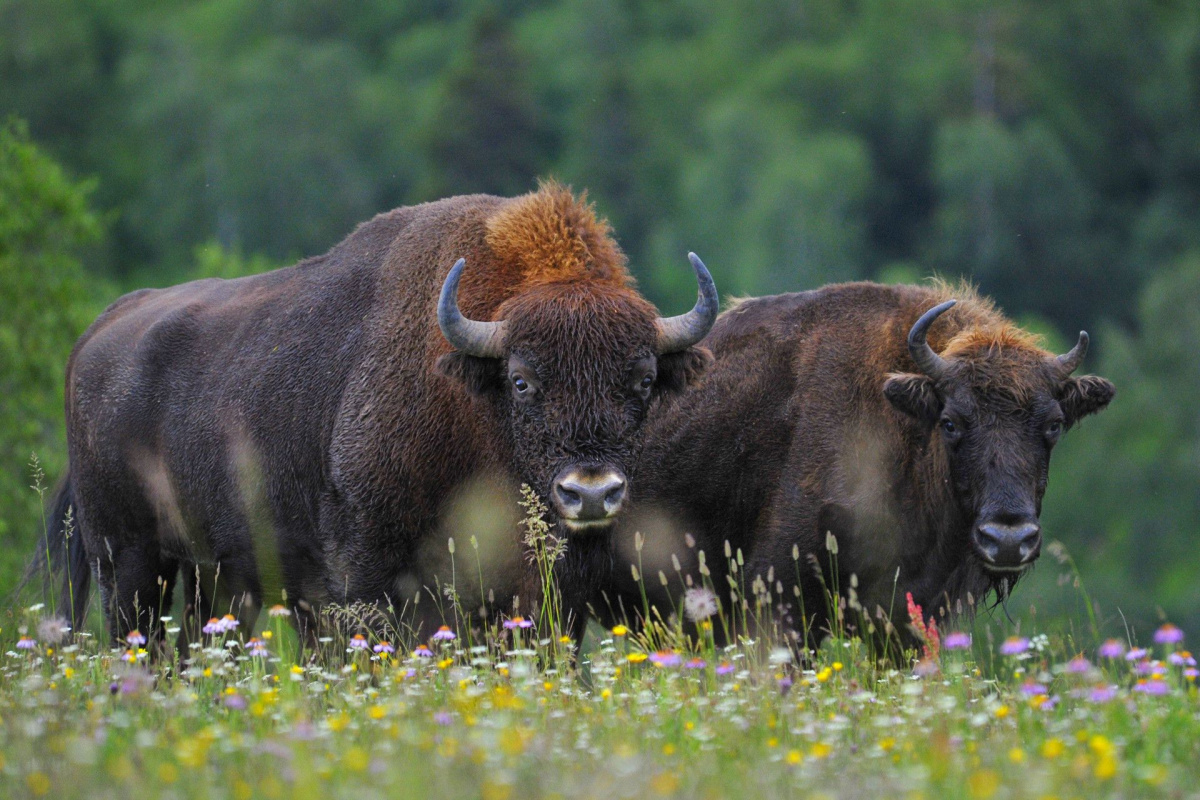

The road from the Moscow region, from where the animal was delivered to the territory of the Republic of Adygea, took two days. For the safe transportation of the bison, Munika was placed in a special carrier made of a metal frame and strong boards.
Specialists of the Caucasian Reserve emphasize that the bison feels good and does not experience stress: she has not lost interest in food and sight, which is a good indicator of her well-being.
"The animal is strong, healthy, endured a long journey with dignity. She spent more than a day on the road. On the road she was fed, watered, made stops so that she could rest a little. Our animal went through quarantine - this is about 30 days. She was separated from the general herd and was in a quarantine block, where daily monitoring was carried out, treatment for parasites, so that the animal was clean," said Andrey Stefutin, veterinarian of the Prioksko-Terrasny State Reserve.
The enclosure, in which Munica has been placed, is a temporary structure. In the spring, they will start building a new house for the bison, more colloquial and comfortable, with a strong fence, as well as with special feeders.
"The Caucasian-Belovezhskaya line has its roots in this subspecies. So their blood is now walking in the blood of our mountain bison. In addition, we plan to bring here another young bison. So I hope that in the near future this enclosure complex will become even more interesting and meaningful," said Nikolay Yeskin, deputy director for scientific work of the Caucasian Reserve.
Munik's bison is the second animal that is kept on the territory of the Caucasian Reserve in semi-free conditions. The bison Muar has been living in the enclosure complex for more than 14 years. By the way, bison's names are their distinguishing feature: in the nursery, all bison are given names that begin with the letter "M" - from the Moscow region.
